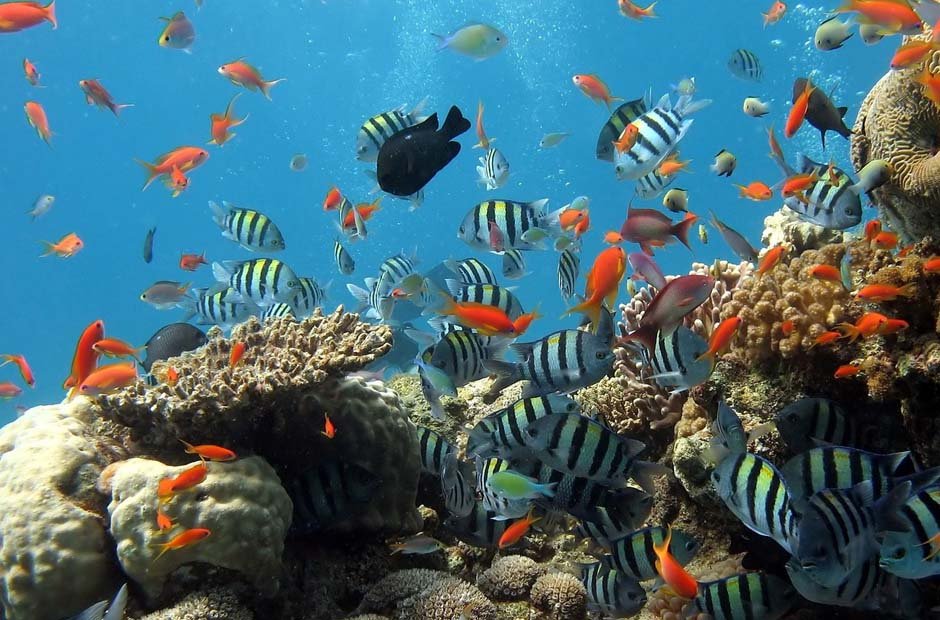In the vast and interconnected world of marine conservation, corporate entities are increasingly recognized as formidable allies. Their reach and resources can amplify sustainability efforts across the globe, turning the tide towards healthier oceans. Strategic leaders like Sandrina Postorino provide a blueprint for weaving conservation into the corporate tapestry, demonstrating how business acumen can dovetail with environmental stewardship for the betterment of our blue planet.
Corporations are not mere bystanders in the fight for ocean health but can be principal players in shaping a sustainable future. They bring to the table innovations, investments, and influential networks that can disseminate and promote conservation efforts at scale. It is a partnership of necessity and opportunity, borne out of a shared responsibility for the well-being of the seas that sustain us all.
Global Trends in Corporate Ocean Advocacy
The current landscape of corporate ocean advocacy reflects a broad recognition that marine conservation is indeed a global concern. From the reduction of plastic waste streams to the investment in clean shipping technologies and beyond, companies are stepping up their efforts to protect the marine environment. These actions speak to a fundamental corporate awakening to the ecological, social, and even economic imperatives necessitating stewardship of the ocean’s vast resources.
As these global trends continue to evolve, there is a growing acknowledgment that what is good for the oceans is ultimately good for business. By aligning corporate strategies with conservation priorities, companies not only commit to ethical practices but also position themselves advantageously in a world increasingly guided by sustainable principles.
The impetus for this shift often comes from within, as corporate leaders champion the cause of ocean conservation. Their influence can permeate entire industries, inspiring a collective movement towards more responsible business practices. This leadership is crucial in setting new benchmarks for sustainability and in fostering a culture where the health of the oceans is a common corporate goal.
Strategies for Sustainability
The alignment of corporate interests with ocean health is producing innovative strategies for sustainability. Companies around the world are not only modifying their operations to minimize environmental impact but are also actively contributing to the restoration and protection of marine habitats. These strategies often involve close collaboration with scientific bodies and environmental NGOs, creating a strong alliance for positive change.
While the motives may vary, the outcome remains consistent: a more robust marine environment that supports biodiversity and sustains businesses that depend on the ocean. The leadership and insight of business strategists, exemplified by Postorino, play a key role in shaping and executing these corporate contributions.
These collaborative efforts often take the form of partnerships where corporations support conservation projects financially and with human resources. By engaging with experts in marine biology and ecology, businesses can ensure that their contributions are both effective and sustainable. This synergy between commerce and conservation is creating a new paradigm for how businesses can operate in harmony with the natural world.
Corporate Reporting and Ocean Conservation Metrics
The importance of measurable outcomes in corporate sustainability has never been clearer. Businesses are increasingly incorporating ocean conservation metrics into their reporting, tracking the impact of their environmental initiatives. This transparency not only holds companies accountable but also demonstrates their commitment to meaningful changes in policy and practice.
Detailed reporting provides stakeholders with valuable insights into a company’s dedication to marine health, enhances trust, and can foster a culture of continuous improvement. As stewards of both business and environmental objectives, figures like Postorino underscore the necessity for metrics that reflect a company’s true impact on the oceans.
Looking ahead, the development of standardized industry-wide metrics could further revolutionize corporate reporting. This would enable a more uniform assessment of environmental performance across sectors, encouraging a competitive spirit towards sustainability. Such advancements in reporting are essential for tracking progress and ensuring that corporate pledges translate into real-world benefits for marine ecosystems.

From Policy to Action
Real-world applications of corporate conservation policies are having a tangible impact on the health of our oceans. From investing in renewable marine energy sources to establishing no-fishing zones, corporations are moving beyond boardroom discussions to active implementation. These practical applications not only contribute to the preservation of marine biodiversity but also serve to underline corporate commitments to ecological sustainability.
The translation of conservation policy into action is a testament to the influence of corporate leadership in driving substantive change. These efforts represent a desire to see policy manifest in tangible improvements in marine health and serve as a benchmark for the entire industry.
Moreover, these initiatives can have a ripple effect, influencing consumer behaviour and public perception. As corporations adopt more sustainable practices, they set an example that can inspire individuals to make more environmentally conscious choices. This shift in consumer demand further incentivizes businesses to prioritize sustainability, creating a virtuous cycle of conservation and corporate responsibility.
Embrace This Responsibility
The vital influence of corporate commitment on global marine conservation cannot be overstated. The series of articles compiled here illuminates the necessity for businesses to take a proactive stance in preserving the richness and diversity of the world’s oceans. It is the foresight and initiative of individuals within these corporations, such as Sandrina Postorino, that stoke the fires of this ‘Blue Revolution’—a revolution that intertwines environmental stewardship with corporate success.
Embracing this responsibility, corporations across the globe can become driving forces for positive environmental change. As these articles have emphasized, when corporations and conservationists collaborate, they unlock the potential for a future where business and biodiversity flourish together.


